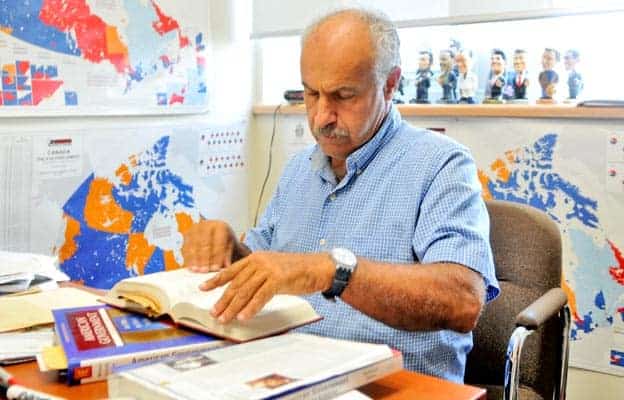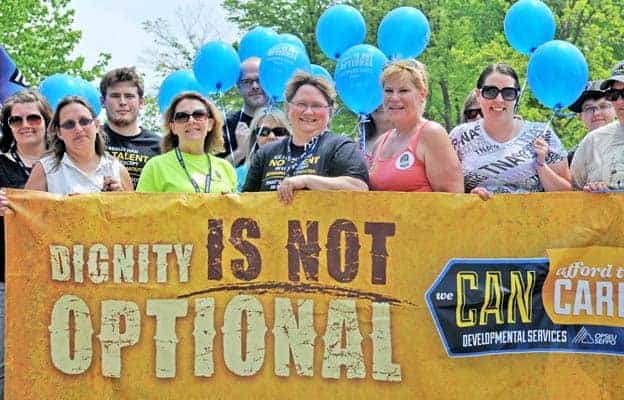Just two weeks before the provincial election, experts are calling the Kitchener-Waterloo area one of the contest’s most competitive and important battlegrounds.
![Barry Kay teaches political science at Wilfrid Laurier University. [Scott Barber / The Observer]](https://www.observerxtra.com/content/images/wp-content/uploads/2014/05/post_localridings.jpg)
“Both the Kitchener-Waterloo and Kitchener-Centre ridings are too close to call,” said Prof. Barry Kay, an associate with the Laurier Institute for the Study of Public Opinion and Policy (LISPOP). “Kitchener-Conestoga could also be in play, but it’s in the ‘probable Conservative’ category right now.”
Kay predicts a tight race between the Liberals and Progressive Conservatives overall, making swing ridings particularly crucial to each party.
“What is so unusual about this election is the similarity with the Liberals’ win in 2011,” he said. “Last time, the Liberals beat the Conservatives by 2.2 per cent, and right now we’ve got a Liberal lead by just under one per cent.”
That would correlate to another Liberal minority victory, this time with 48 seats compared to 53 in 2011, with the Conservatives jumping from 37 to 39. LISPOP data also shows a slight increase by the NDP, from 17 to 20 representatives at Queen’s Park.
Polling in Kitchener-Centre is especially valuable for forecasters, since the riding has gone with the winning party in every election for more than 50 years.
“Kitchener-Centre is one of the best bellwethers in Ontario,” Kay explained. “It is close to the midpoint of the province in terms of representing trends, and indeed, it has consistently picked up on trends on both the left and right over the years.”
Three years ago, Liberal incumbent John Milloy topped PC candidate Dave Macdonald by just 323 votes. With new candidates running for each of the three main parties, expect another nail-biter.
Kitchener-Conestoga however, isn’t nearly as close.
“If the Progressive Conservatives won last time when the Liberals won the election, there is no reason to think it’s in serious jeopardy,” Kay said, noting that Michael Harris has been a “very competent MPP.”
Last election, Harris cruised to a seven-point win over Liberal incumbent Leeanna Pendergast.
Kay also predicts a decline in voter turnout.
“I don’t think the party leaders have really connected with the population,” he said.
Apart from Tim Hudak’s promise to cut 100,000 public sector jobs, which has faced stiff criticism, party messaging has been “largely predictable and ineffective at influencing public opinion,” Kay added.
But Kay does caution that it is becoming increasingly difficult for pollsters to gage what the public is thinking.
“The most interesting phenomenon to me has been that the polls are all over the place. You always see a range, but I’ve never seen anything quite like this, where polls conducted at the same time are showing an 18-point spread. That shouldn’t be happening.”
Fewer and fewer people respond to telephone polling, he says, leading polling houses to seek new research methods.
“The bottom line is that different pollsters are using slightly different methods and criteria, and that might be what is producing the different results.”
Nonetheless, most prognosticators say we are in for another exciting election night, one that could be decided in large part by Kitchener-Waterloo area voters.









